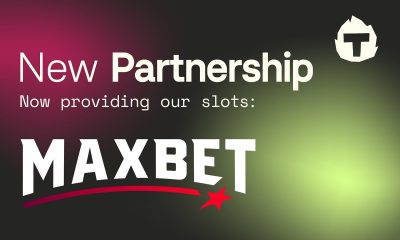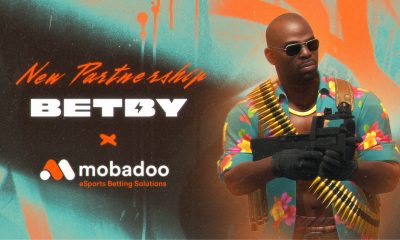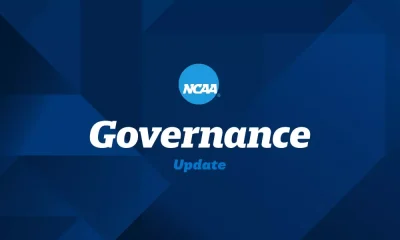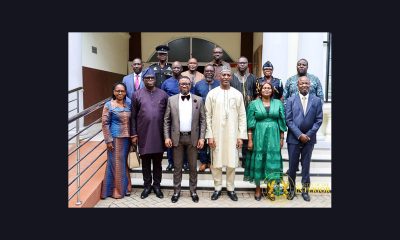Latest News
The Impact of Regulatory Changes on Media Buying in iGaming
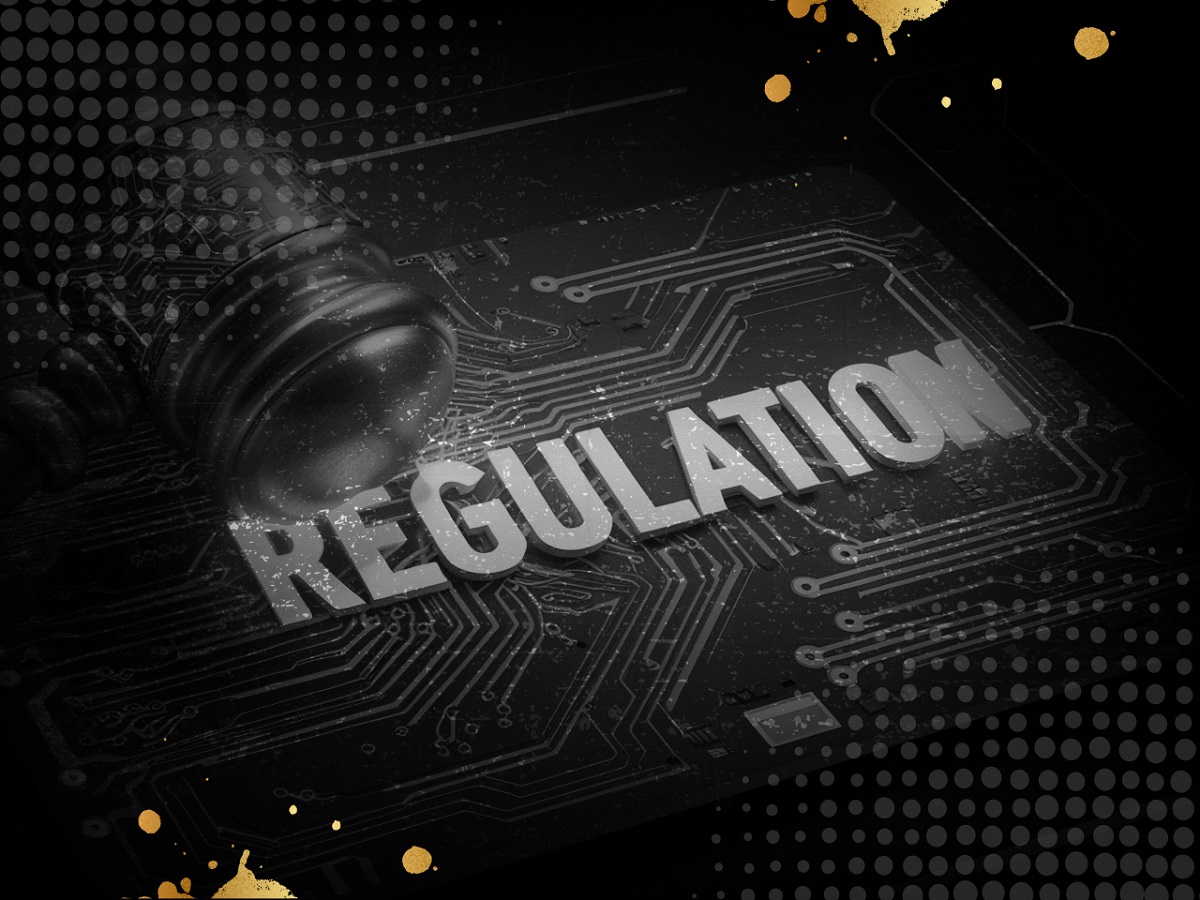
How legislative shifts influence media buying strategies and adaptation in a rapidly evolving industry
The iGaming industry is one of the most heavily regulated digital sectors, constantly adapting to new compliance frameworks worldwide. Regulatory changes affect not only operators but also media buyers, who must rethink their advertising strategies, creatives, and audience engagement approaches. While regulation enhances player safety, it also fosters challenges such as increased costs, creative limitations, and the rise of unlicensed operators.
Experts from the media buying agency RockApp have conducted an in-depth analysis of how regulatory changes impact the entire iGaming ecosystem.
How Regulations Shape Ad Creatives in iGaming
One of the most immediate effects of regulation is the restriction on advertising creatives. The UK, for instance, is one of the most tightly regulated markets, where media buyers must comply with strict guidelines:
- No mention of currency in ads: According to the UK Advertising Codes regulated by the ASA, there is no direct ban on the use of currency in gambling advertisements. However, advertisers must adhere to strict guidelines to ensure they do not mislead customers regarding potential winnings.
- No misleading claims or exaggerated expectations: Ads should not mislead users by exaggerating the chances of winning or implying that gambling can be a solution to financial concerns.
- No streamers or influencers with significant underage audiences: Featuring individuals who are, or appear to be, under 25 years old is prohibited. Additionally, using celebrities or influencers who have a strong appeal to under-18s is not allowed.
- Strict moderation of creatives before approval
- Social Responsibility: Advertisements must not portray gambling as indispensable or as a way to achieve financial security. They should not suggest that solitary gambling is preferable to social gambling.
These regulations necessitate careful consideration during the creation of advertising content. For instance, the prohibition on content that strongly appeals to under-18s means avoiding the use of animated characters, certain color schemes, or themes associated with youth culture. Additionally, the restriction on featuring individuals under 25 limits the selection of brand ambassadors and influencers, requiring brands to choose representatives who not only resonate with the target audience but also comply with age-related guidelines.
According to AppsFlyer’s “State of Gaming App Marketing – 2024 Edition,” global app user acquisition ad spend grew by 5% in 2024 to $65 billion, with a significant portion allocated to gaming apps. This increase underscores the importance of adhering to advertising regulations to ensure that marketing efforts are both effective and compliant.
In summary, the UK and other regulated countries’ stringent advertising regulations significantly influence the development of ad creatives in the iGaming industry. Advertisers must navigate these rules carefully to create content that is engaging yet compliant, ensuring that their marketing strategies uphold the principles of social responsibility and consumer protection.
Licensed media buying agencies can effectively adapt by integrating disclaimers and legal notices without compromising user engagement. While these additions reduce creative space, they don’t hinder performance significantly.
The Paradox: Regulation Enhances Safety but Fuels the Gray Market
Regulation is designed to protect players, but in some markets, it has also led to a surge in unlicensed casinos. For example, France, Poland, and the Netherlands have all experienced an influx of offshore operators who can acquire players at lower costs compared to licensed brands.
In Poland alone, nearly 50% of the gambling market operates in a gray zone, leading to an estimated annual tax loss of over $247 million. In 2023, transactions through unlicensed platforms reached $8.6 billion, prompting industry experts to call for urgent regulatory reforms by 2026 to curb further market deterioration.
Why does this happen? Strict regulations often limit marketing avenues for legal operators, making it difficult for them to compete with unlicensed platforms that operate without restrictions. As a result, players may turn to black-market casinos that offer more aggressive promotions, unrestricted gameplay, and fewer account verification hurdles.
For media buyers, this creates a complex landscape – navigating between compliance, profitability, and market demand.
The Value and Strategic Advantage of Media Buying in Regulated Markets
Operating under a license means adhering to an extensive list of requirements:
- Adhering to jurisdiction-specific advertising laws
- Complying with responsible gambling policies
- Avoiding blacklisted traffic sources
- Implementing strict user verification processes
While these regulations add complexity, they also bring long-term benefits. Running campaigns in a legally compliant manner allows for sustainable business growth, fostering trust among players and partners. Although user acquisition costs in regulated markets are higher, the quality of users significantly improves due to the absence of low-quality creatives with miss-promises, exaggerated expectations, and outright scams, which are prevalent in unregulated markets.
Advertisers appreciate this shift, as the traffic quality far exceeds expectations. This, in turn, improves lifetime value (LTV) and fosters long-term relationships between brands and agencies. Here’s a comment from a representative of HighRoller Casino, one of RockApp’s key clients:
“Stricter regulations in the iGaming industry have significantly increased operational demands and social responsibility for businesses. While compliance creates a more structured and reliable market, it also adds layers of complexity that companies must navigate. There are both advantages and challenges. On the one hand, licensed operators benefit from greater stability and credibility; on the other, the regulatory burden requires continuous adaptation. Finding the right balance is key to ensuring sustainable growth without restricting innovation.“– HighRoller Casino, CEO.
And a perspective from Soft2Bet:
“Choosing the right traffic partner is crucial in today’s iGaming landscape. RockApp has proven to be a reliable partner, delivering high-quality traffic and seamlessly adapting to the regulated market with the right approach. They don’t just follow trends – they anticipate changes and optimize processes to ensure outstanding results. The strategies that worked in the past are no longer effective, but RockApp excels at evolving, refining, and elevating performance to an entirely new level.” – Soft2Bet, CEO.
In contrast, grey and black market operators often have lower operational costs since they bypass licensing fees and may evade taxes. This cost advantage allows them to offer more attractive odds or bonuses to players. However, these operators face significant risks, including legal actions, lack of access to reputable payment processors, and challenges in establishing trust with players due to the absence of regulatory oversight.
A 2024 report by the European Gaming and Betting Association (EGBA) highlighted concerns that overly stringent regulations in some European countries are inadvertently driving players towards black market operators.
This trend is further reflected in Sweden, where a report by AB Trav och Galopp (ATG) revealed that traffic to unlicensed gambling operators has increased tenfold since 2019. The study estimates that the gross gaming revenue (GGR) of illegal operators now reaches 13 billion SEK ($13.64 billion) annually, with users reportedly spending 10-20 times more in unlicensed online casinos. ATG’s CEO has criticized Sweden’s current gambling laws, stating that excessive restrictions on licensed operators are creating an unfair playing field and driving users toward unregulated alternatives.
While licensed operations bring stability and quality assurance, excessively restrictive regulations can inadvertently push players and advertisers toward unregulated markets. This paradox is evident in markets like Sweden and Poland, where overly stringent policies have led to a surge in black-market activity. Thus, the key lies in finding a balance – ensuring robust consumer protection without stifling the competitive landscape for licensed operators.
In summary, while operating in the white market entails higher compliance costs, it ensures legal security and fosters player trust. Conversely, grey and black market operations may offer short-term financial gains but come with significant legal and reputational risks.
For media buying agencies, working within legal frameworks unlocks significant advantages:
- Access to bigger clients: Major iGaming brands prefer licensed agencies.
- Better partnerships: Large ad networks and platforms favor advertisers that comply with regulations.
- Higher-quality traffic: Compliance reduces fraud, improving traffic efficiency.
Many traffic sources, including Google, Facebook, and premium programmatic platforms, enforce strict iGaming policies. This means agencies that operate in compliance gain preferential access, while black-market operators struggle with bans and restrictions.
In contrast, working with unlicensed brands often leads to short-term gains but long-term instability. Black-hat media buying comes with high risk, including frequent account shutdowns, payment delays, and loss of advertiser relationships.
The Impact of Regulations on Influencer and Streaming Marketing
Strict regulations have also affected influencer marketing. In countries with tight restrictions, streamers can no longer serve as direct brand ambassadors for casinos. For example, while streamers in Tier 3 markets (regions with lax regulations) aggressively promote gambling to younger audiences, this is strictly forbidden in Tier 1 markets like the UK and France.
To adapt, agencies have found creative solutions:
- Using AI and deepfake technology to modify streamer appearances
- Replacing copyrighted music with royalty-free alternatives
- Carefully curating influencer partnerships to avoid compliance risks
These strategies help agencies continue leveraging influencer marketing without violating legal guidelines.
Conclusion
Regulation is an unavoidable reality in iGaming media buying. While it presents challenges, it also creates opportunities for agencies that know how to navigate the landscape effectively.
For media buyers, working within legal frameworks is no longer an option – it’s a necessity. The future belongs to those who can play by the rules while still outperforming the competition. Recently, RockApp has secured licenses in all regulated states across the United States, further solidifying its commitment to compliance and long-term growth in the iGaming industry.
The post The Impact of Regulatory Changes on Media Buying in iGaming appeared first on European Gaming Industry News.
Latest News
Rivalry Reports Full-Year 2024 Results as Strategic Turnaround Takes Hold, Operating Loss Narrows, and Efficiency Improves

Operating expenses reduced 17%, net loss narrows, and foundational rebuild positions Rivalry for a leaner, more efficient, and financially disciplined 2025
Rivalry Corp. (the “Company” or “Rivalry”) (TSXV: RVLY), an internationally regulated sports betting and media company, announces its financial results for the fiscal year ended December 31, 2024.
While Rivalry’s 2024 financials reflect only the earliest signals of its company-wide restructuring, the foundational work – most of which began in the second half of 2024 – is now beginning to show results in 2025. The Company narrowed its net loss, reduced operating expenses by 17%, and entered the new year leaner, more focused, and closer to breakeven.
“We made hard decisions last year – rebuilding the product, cutting costs, and refining our approach to players – and those changes are beginning to show signs of positive impact,” said Steven Salz, Co-Founder and CEO of Rivalry. “The latter half of 2024 set the stage, and we’re encouraged by the progress seen so far in 2025.”
FY2024 Highlights
- Net revenue of $13.6 million, compared to $16.2 million in 2023.
- Operating expenses decreased 17% to $32.2 million, down from $38.8 million.
- Net loss of $22.4 million, compared to $23.8 million.
- Deferred revenue of $4.1 million related to pre-sales of Rivalry’s on-platform crypto token.
- Year-end cash of $2.7 million, with materially lower run-rate operating expenses entering 20251.
Organizational Rebuild & Operating Leverage
Rivalry spent the latter part of 2024 and into Q1 2025 executing a comprehensive overhaul across its cost base, product, player strategy, and operational structure. With most changes now implemented, early signs of progress are emerging. Highlights include:
- Lean operating model, with breakeven net revenue now approximately $600,000 USD/month, down from over $2 million USD/month a year ago. Further reductions to operating costs are planned in Q3 2025 to lower the breakeven point even more.
- Restructured VIP program and onboarding, improving retention and monetization from high-value players.
- Expanded casino product, improving baseline stability through missions, races, and progression-based systems.
- Platform upgrades enhancing site speed, responsiveness, and conversion.
- Crypto-native infrastructure overhaul, including a rebuilt cashier, improved user experience (“UX”), and token-ready architecture to support long-term on-chain growth.
These efforts have driven early improvements across the Company’s core key performance indicators in 2025:
- Net revenue per active user and wagers per user at record levels (excluding customary outliers).
- Deposit growth in nearly every month from November 2024 through June 2025, despite minimal marketing spend.
- Monthly new first-time depositors (FTDs) up approximately 40% since January 2025 on flat monthly spend. Average payback on cohorts acquired during this period was approximately 1.5 months, highlighting improved customer acquisition efficiency.
2025 Momentum and Execution
In the first half of 2025, Rivalry continued executing against its strategic turnaround, with a focus on increasing player value, tightening operational efficiency, and accelerating near-term revenue drivers. Key initiatives included:
- Loyalty Program v2: Building on the success of the end-2024 launch, the next iteration of Rivalry’s on-site loyalty program is in development, designed to deepen progression, improve engagement, and anchor major campaigns throughout Q3 2025.
- New Promo Engine: Launching this summer, the rebuilt system introduces immediate-match deposit offers and new promo types, integrated directly into onboarding and reactivation flows to lift first time deposits and retention.
- Customer Relationship Management (“CRM”) and Always-On Optimization: Active performance reviews of core flows, geo-targeted reactivation campaigns, and structural upgrades to improve output across the customer lifecycle.
- VIP & High-Value-Player Activity: Fully structured outreach live across geos, with segmentation, high-touch CRM, and LTV-based targeting to reactivate high-value-players.
- Cashier & Site Speed: Continued improvements to platform speed, including faster load times, and reduced friction in cashier UX.
- Ongoing UX Improvements: Consistent updates across the site aimed at visual polish, design coherence, and front-end responsiveness to deliver a cleaner, more reliable user experience.
These initiatives have laid a foundation entering the second half of 2025. The focus now is on maintaining momentum, tightening execution, and scaling revenue through improved player economics and operational leverage.
Strategic Review
The Company’s previously announced evaluation of strategic alternatives remains ongoing. Rivalry continues to explore a range of potential outcomes aimed at maximizing shareholder value. There is no assurance regarding the timing or results of this review.
Outlook
While the 2024 annual results capture only the early innings of Rivalry’s strategic transformation, the changes made throughout the year have meaningfully repositioned the Company. With a leaner cost structure, stronger product, and increasing revenue efficiency, Rivalry is entering the second half of 2025 with sharper operational discipline and renewed focus.
Additional updates will be provided alongside the release of the Company’s financial results for the three months ended March 31, 2025, which are expected to be released on or prior to July 14, 2025.
Unsecured Loan
The Company also announces that it has secured a US$475,000 principal amount senior unsecured loan from its existing senior lender, maturing on September 30, 2025, with an interest rate of 10% per annum (the “Loan”). The Loan reinforces the Company’s senior lender’s support for the Company’s ongoing strategic review process and provides the Company with additional flexibility to continue pursuing its strategic initiatives to maximize long-term stakeholder value.
Update Regarding Management Cease Trade Order
The Company is providing this update on the status of a management cease trade order granted on May 1, 2025 (the “MCTO“) by its principal regulator, the Ontario Securities Commission (the “OSC“), under National Policy 12-203 – Management Cease Trade Orders (“NP 12-203“). On May 2, 2025, the Company announced that there would be a delay in the filing of its annual financial statements, management’s discussion and analysis and related CEO and CFO certificates for the fiscal year ended December 31, 2024 (collectively, the “Annual Filings”), as required under applicable Canadian securities laws (the “Default Announcement“). On June 18, 2025 the Company further announced that it expects to file its unaudited financial statements and management’s discussion and analysis for the three months ended March 31, 2025 and related certifications (collectively, the “Q1 Filings“) on or prior to July 14, 2025. Although the Annual Filings have now been filed, the OSC has advised the Company that the MCTO will remain in place until the Q1 Filings have been completed.
The Company advises that: (i) there have been no material changes to the information contained in the Default Announcement; (ii) it intends to continue to comply with the alternative information guidelines of NP 12-203; and (iii) except as previously disclosed, there are no subsequent specified defaults (actual or anticipated) within the meaning of NP 12-203.
The MCTO will remain in effect until the Company is no longer in default with respect to its filing requirements and the OSC lifts the cease trade order.
The post Rivalry Reports Full-Year 2024 Results as Strategic Turnaround Takes Hold, Operating Loss Narrows, and Efficiency Improves appeared first on Gaming and Gambling Industry in the Americas.
Latest News
iGB L!VE opens in London

The 2025 edition of iGB L!VE opened today (2nd July) at it’s new ExCeL London home. iGaming professionals made full use of ExCeL London’s transport infrastructure with Elizabeth Line and Docklands Light Railway trains full of visitors celebrating the show’s relocation to the Capital.
Organisers are seeking to grow the iGB L!VE attendance and, in the process set another record for the event. The 2024 edition, which was the last to be held in Amsterdam attracted 9,788 unique attendees, surpassing the 7,299 at iGB L!VE 2023 and was nearly double the 5,022 at iGB L!VE 2022. The 2025 edition of iGB L!VE will be the biggest on record, providing attendees with access to over 22,000 sqm of product innovation and inspiration.
Claire Williams OBE, the former leader of the Williams Formula 1 racing team and one of the most prominent and successful women in F1 history provided the iGB L!VE 2025 keynote.
Exploring the best practice parallels which can be drawn between the data-driven worlds of F1 and iGaming, Claire Williams noted: “There are a number of ways that Formula 1 can inspire businesses and provide tangible takeaways for iGaming operators of all sizes, from product innovation to navigating entry into new markets. As well as key requirements such as having a dynamic leadership, a culture of continuous improvement, hiring the very best problem solvers and being the first to embrace technology advances, F1 also demands the organisational agility that’s necessary to nuance strategy in what is an ultra-competitive space. “
Described as the TED of iGaming, iGB L!VE features a mix of highly practical case studies, data presentations and panel discussions on best practices across operators and affiliates. Topics include innovations in in-play betting, how to use IP and branding to protect competitive advantage, integrated marketing and SEO strategies, how to build links when no one wants to talk about gambling, as well as market dives into LatAm, UAE and Italy. The full programme can be viewed at:https://www.igblive.com/event-schedule
The post iGB L!VE opens in London appeared first on European Gaming Industry News.
Gaming
THE BATTLE OF POLYTOPIA ANNOUNCES GLOBAL WORLD CHAMPIONSHIPS WITH $10,000 PRIZE POOL
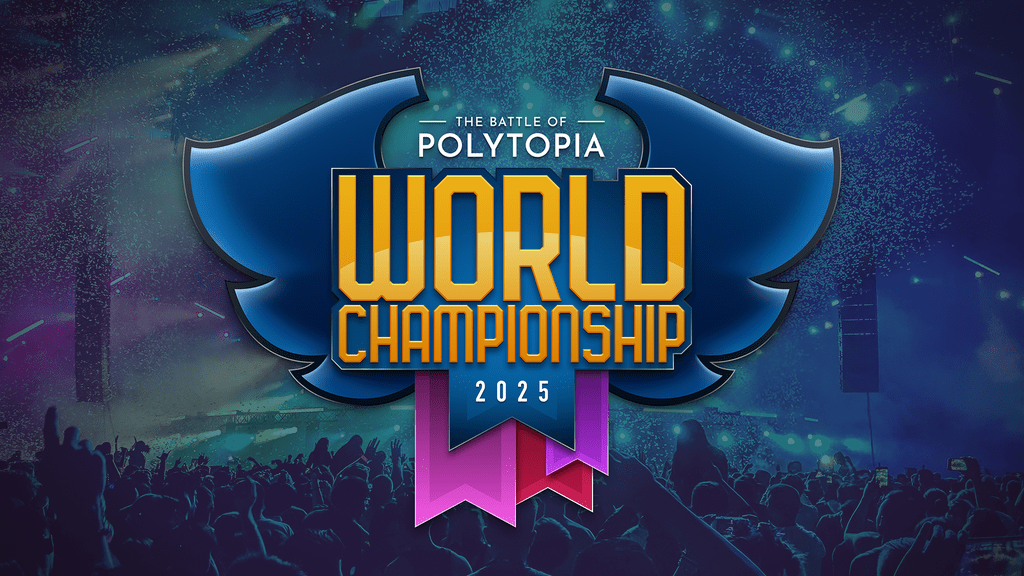
Midjiwan, the award-winning independent studio behind The Battle of Polytopia has today announced The Polytopia World Championship with a prize pool of $10,000 USD and a live final broadcast from Stockholm.
The Polytopia World Championship is set to launch this fall, uniting players from across the globe in an epic showdown of fast-paced strategic mastery. The tournament will be themed to Battle of the Tribes. Players will choose to compete with one of Polytopia’s 12 in-game tribes; each with a unique regional theme and skillset.
The tournament will begin with open qualifiers, giving everyone a chance to prove themselves. From there, players will advance through tribe-specific playoffs and head-to-head elimination rounds, each match bringing them one step closer to glory.
The top six players will earn a spot in the live finals in Stockholm on December 6: an in-person event streamed online for fans worldwide. In addition to live commentary of the tournament, the fan event will also provide behind-the-scenes content from the Midjiwan team.
The winner will be awarded a prize pool of $10,000; making this tournament the biggest competitive event in The Battle of Polytopia’s nine year history.
Christian Lovstedt, CEO of Midjiwan AB, commented: “This marks a major new step for Polytopia’s competitive scene, featuring a fresh tournament format and enhanced broadcasting that makes it even more exciting for viewers to watch, learn, and get inspired by the world’s top players.“
The matches will be played on the Polytopia Official Space on the Challengermode esports Platform.
The planned dates are:
September:
-
Sep 13–14
-
Sep 20–21
-
Sep 27–28
October:
-
Oct 4–5
-
Oct 11–12
-
Oct 18–19
November:
-
Oct 25–26
-
Nov 1–2
-
Nov 8–9
Nov 22–23
-
Faceoff
-
Final Qualifier
Dec 6
-
World Championship Live Event
The post THE BATTLE OF POLYTOPIA ANNOUNCES GLOBAL WORLD CHAMPIONSHIPS WITH $10,000 PRIZE POOL appeared first on European Gaming Industry News.
-

 Central Europe6 days ago
Central Europe6 days agoGerman Federal Government Significantly Increases the Budget for Games Funding
-

 Eastern Europe7 days ago
Eastern Europe7 days agoThunderkick enhances presence in Romania through MaxBet partnership
-

 BETBY7 days ago
BETBY7 days agoBETBY EXPANDS LATAM FOOTPRINT WITH MOBADOO ESPORTS PARTNERSHIP
-

 California State Assemblymember Avelino Valencia6 days ago
California State Assemblymember Avelino Valencia6 days agoNew Bill in California Could End Online Sweepstakes Gaming
-

 Africa7 days ago
Africa7 days agoBetKing Delivers Healthcare Services and Nutrition Support to Underserved Nigerian Communities
-

 Compliance Updates6 days ago
Compliance Updates6 days agoNew Initiative from DI Council Aims to Enable Betting on Professional Sports
-

 Conference6 days ago
Conference6 days agoAmatic Industries Showcased its Latest Innovations at Peru Gaming Show 2025
-

 Africa6 days ago
Africa6 days agoNew Governing Board of the Gaming Commission of Ghana Sworn in















